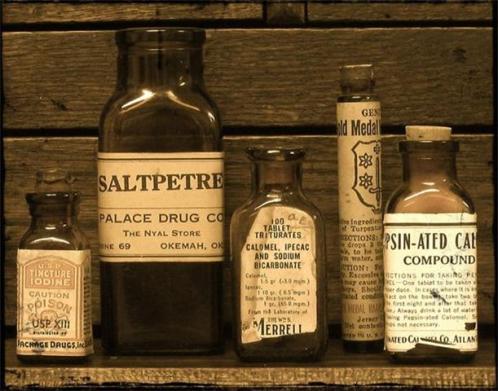Ah, I know it’s Saturday, and there will be a Satireday Post. Don’t Panic!
The world is full of organisations, government, NGOs, etc; all designed to ‘protect’ us but how much can we trust them?
How many are tainted by lies, cover-ups, vested interests, etc?
Take the World Health Organisation, a branch of United Nations. One would think they were beyond lying, hiding and covering-up. One would should consider them beyond reproach in all aspects of international affairs…
How the World Health Organisation covered up Iraq’s nuclear nightmare
Ex-UN, WHO officials reveal political interference to suppress scientific evidence of postwar environmental health catastrophe

Spc Travis Hunter loads armor-piercing depleted uranium-tipped 25mm shells during the second Iraq war Photograph: John Moore/AP
Last month, the World Health Organisation (WHO) published a long awaited document summarising the findings of an in-depth investigation into the prevalence of congenital birth defects (CBD) in Iraq, which many experts believe is linked to the use of depleted uranium (DU) munitions by Allied forces. According to the ‘summary report’:
“The rates for spontaneous abortion, stillbirths and congenital birth defects found in the study are consistent with or even lower than international estimates. The study provides no clear evidence to suggest an unusually high rate of congenital birth defects in Iraq.”
Jaffar Hussain, WHO’s Head of Mission in Iraq, said that the report is based on survey techniques that are “renowned worldwide” and that the study was peer reviewed “extensively” by international experts.
Backtrack
But the conclusions contrasted dramatically from previous statements about the research findings from Iraqi Ministry of Health (MOH) officials involved in the study. Earlier this year, BBC News spoke to MOH researchers who confirmed the joint report would furnish “damning evidence” that rates of birth defects are higher in areas experiencing heavy fighting in the 2003 war. In an early press release, WHO similarly acknowledged “existing MOH statistics showing high number of CBD cases” in the “high risk” areas selected for study.
The publication of this ‘summary document’ on the World Health Organisation’s website has raised questions from independent experts and former United Nations and WHO officials, who question the validity of its findings and its anonymous authorship. They highlight the existence of abundant research demonstrating not only significant rates of congenital birth defects in many areas of Iraq, but also a plausible link to the impact of depleted uranium.
For years, medical doctors in Iraq have reported “a high level of birth defects.” Other peer-reviewed studies have documented a dramatic increase in infant mortality, cancer and leukaemia in the aftermath of US military bombardment. In Fallujah, doctors are witnessing a “massive unprecedented number” of heart defects, and an increase in the number of nervous system defects. Analysis of pre-2003 data compared to now showed that “the rate of congenital heart defects was 95 per 1,000 births – 13 times the rate found in Europe.”
The purpose of the WHO study was to probe the data further, but some say the project is deeply flawed.
Politicised science
Dr. Keith Bavistock of the Department of Environmental Science, University of Eastern Finland, is a retired 13-year WHO expert on radiation and health. He told me that the new ‘summary document’ was at best “disappointing.” He condemned the decision from “the very outset to preclude the possibility of looking at the extent to which the increase of birth defects is linked to the use of depleted uranium”, and further slammed the document’s lack of scientific credibility.
“This document is not of scientific quality. It wouldn’t pass peer review in one of the worst journals. One of the biggest methodological problems, among many, is that the document does not even attempt to look at existing medical records in Iraqi hospitals – these are proper clinical records which document the diagnoses of the relevant cases being actually discovered by Iraqi doctors. These medics collecting clinical records are reporting higher birth defects than the study acknowledges. Instead, the document focuses on interviews with mothers as a basis for diagnosis, many of whom are traumatised in this environment, their memories unreliable, and are not qualified to make diagnosis.”
Opinion:
Oh dear, it seems as though an organisation that we should have the utmost trust in, isn’t quite that trustworthy.
If they can produce this kind of bullshit over a matter of such importance, what do they pass off as truth for lesser, but never-the-less important issues for the rest of the world?
And, if the rot has seeped through the echelons and halls of power of WHO, has it similarly flowed through all such organisations?
To put it simply…






















Posted by Alex Jones on November 2, 2013 at 10:11 am
Welcome to the real world, question everything, trust none of the official bodies.
LikeLike
Posted by argentumvulgaris on November 2, 2013 at 10:59 am
>Alex, it’s a view that I have held for some time. I am under no illusions.
AV
LikeLike
Posted by livingsimplyfree on November 2, 2013 at 10:46 pm
Sadly I’m not surprised. Wish there was one organization or person in government we could trust.
LikeLike
Posted by argentumvulgaris on November 3, 2013 at 9:19 am
>lsf, as long as there is money involved, you can’t trust anyone.
AV
LikeLike